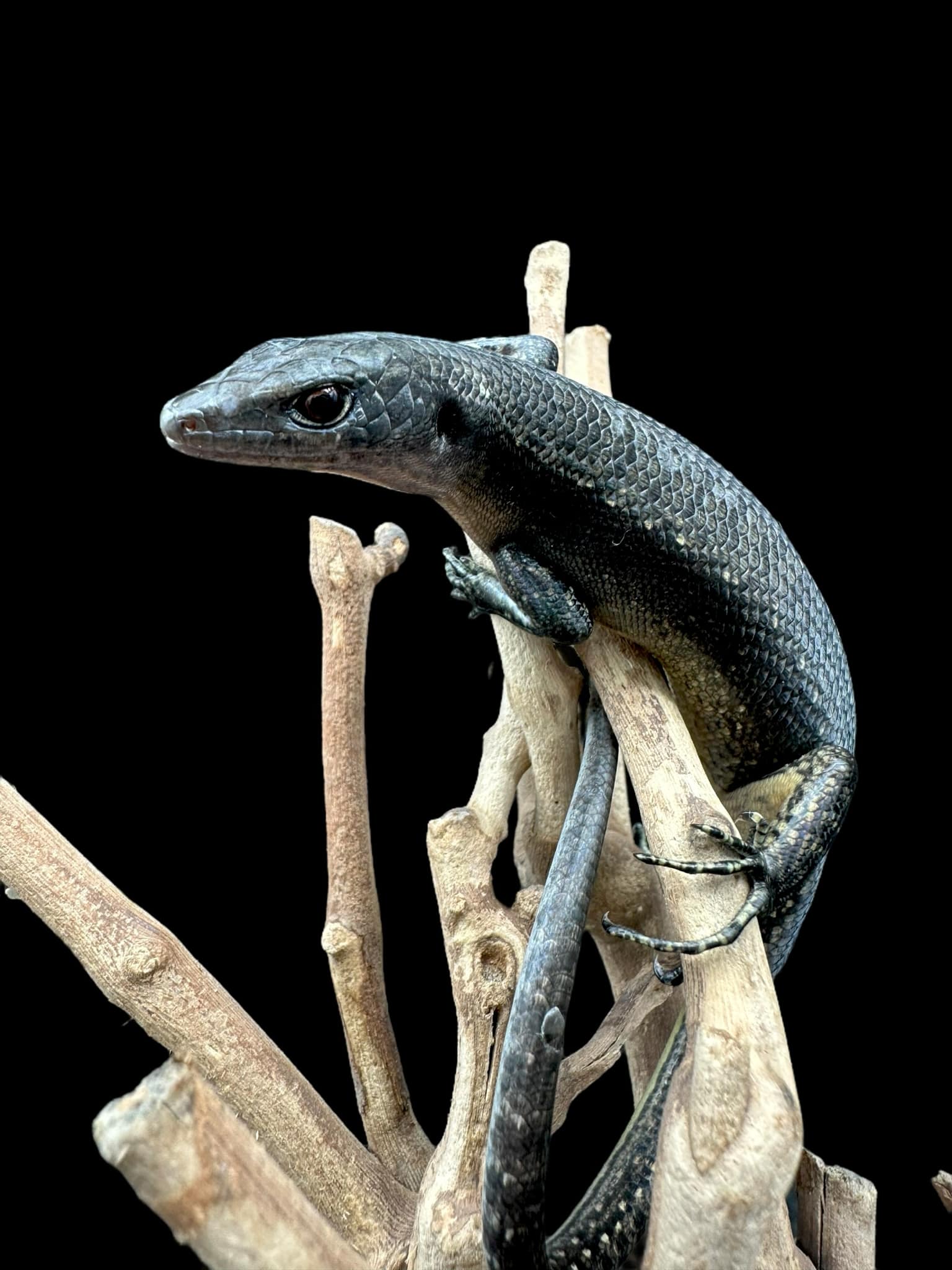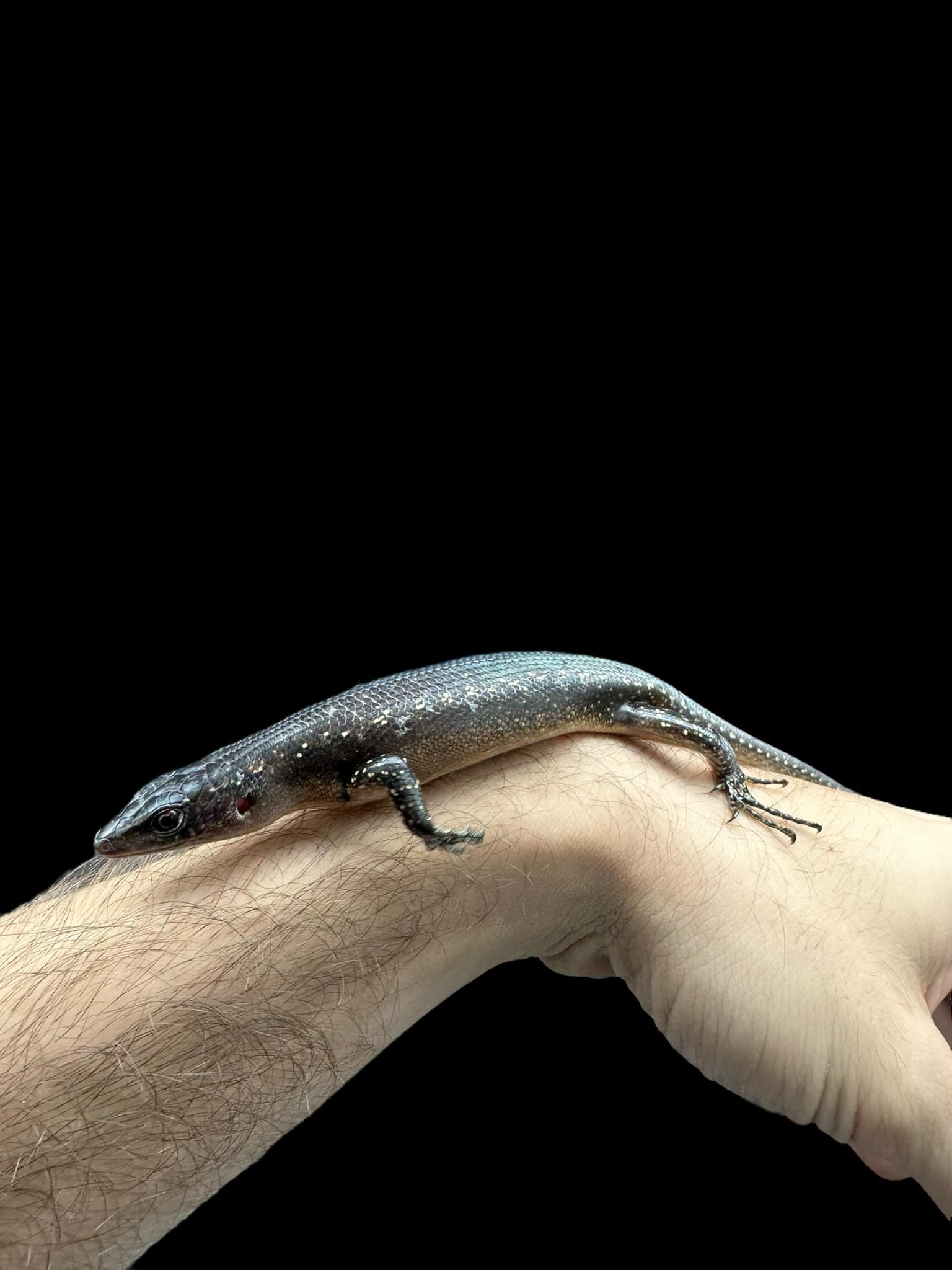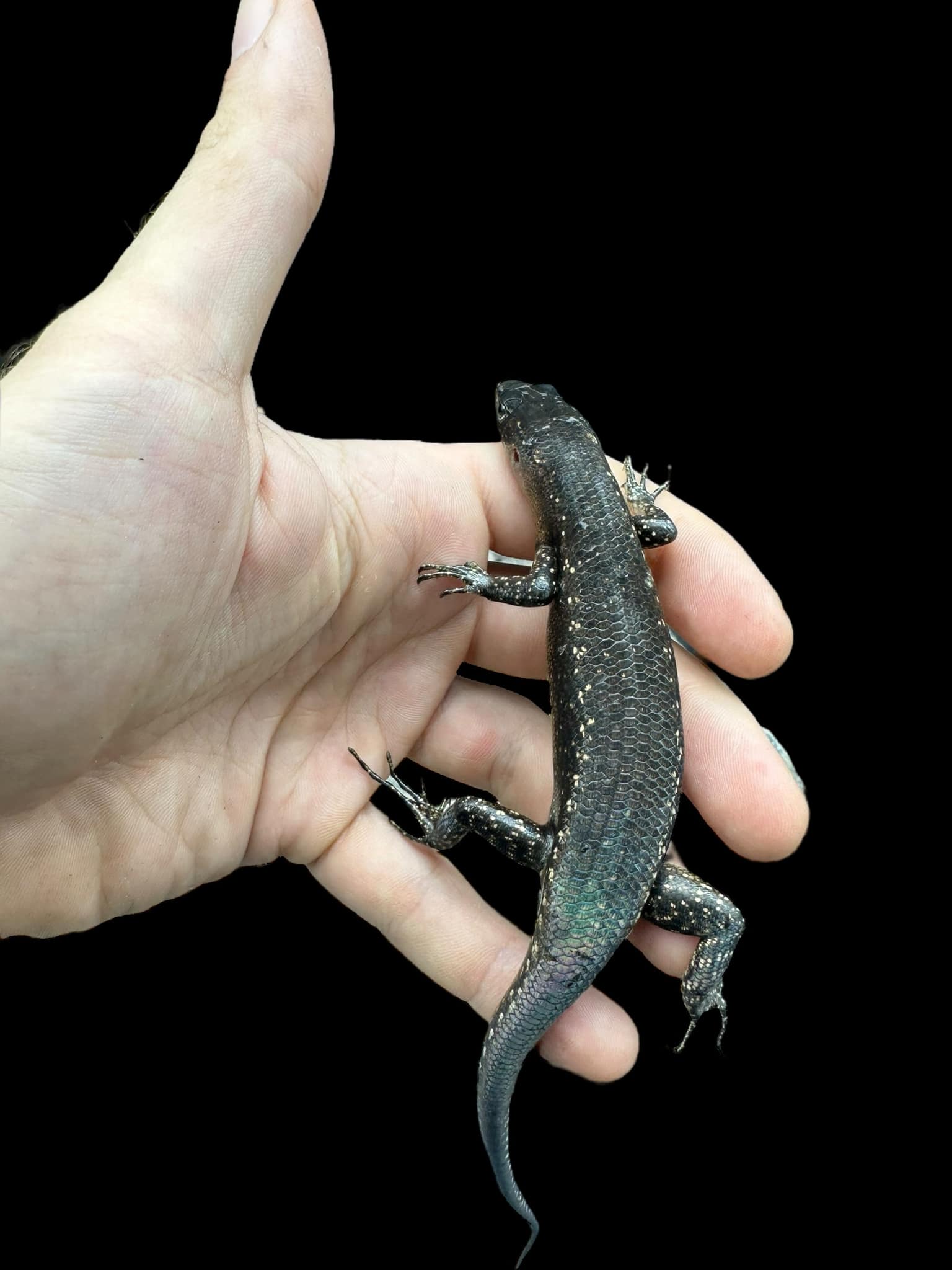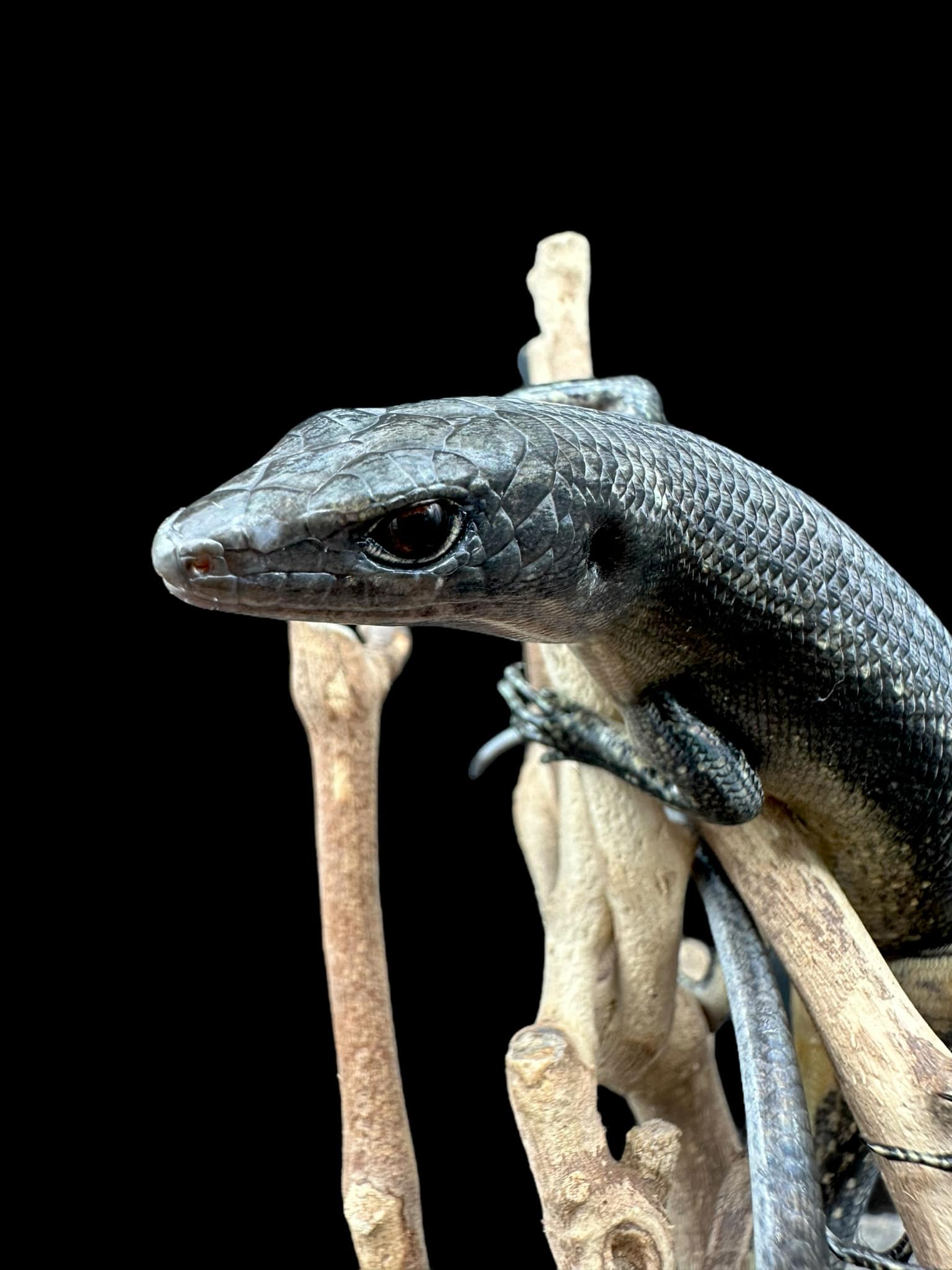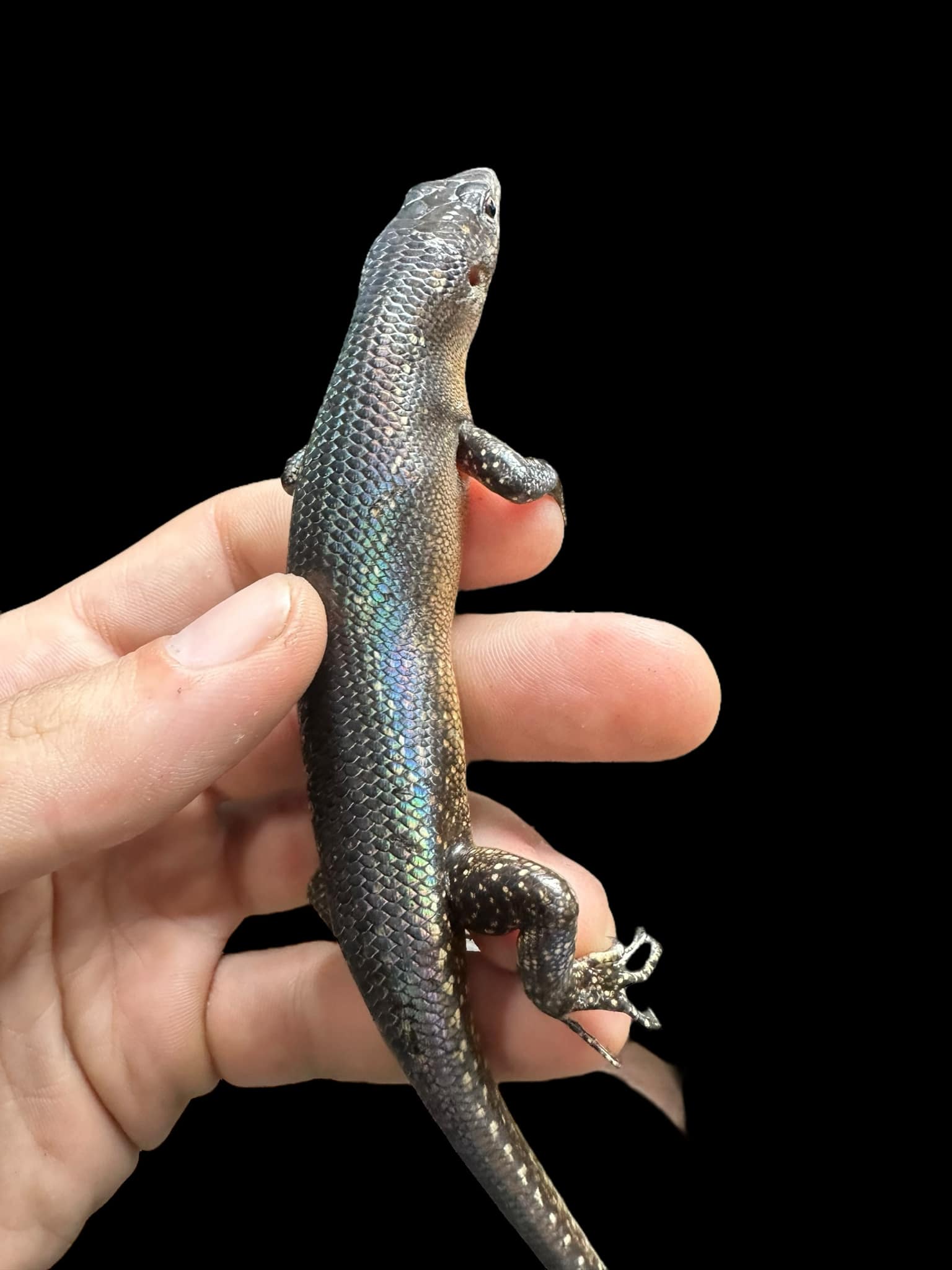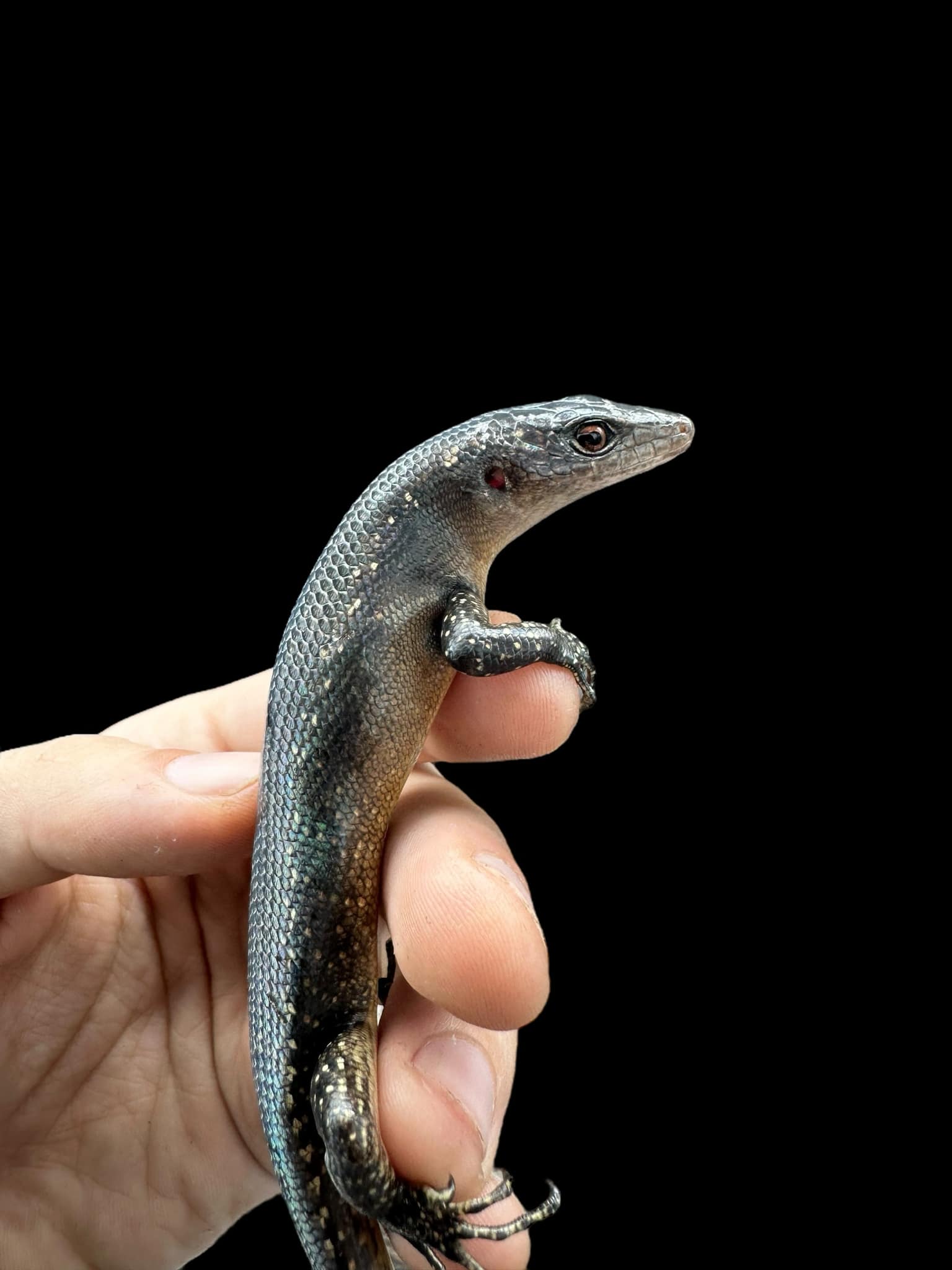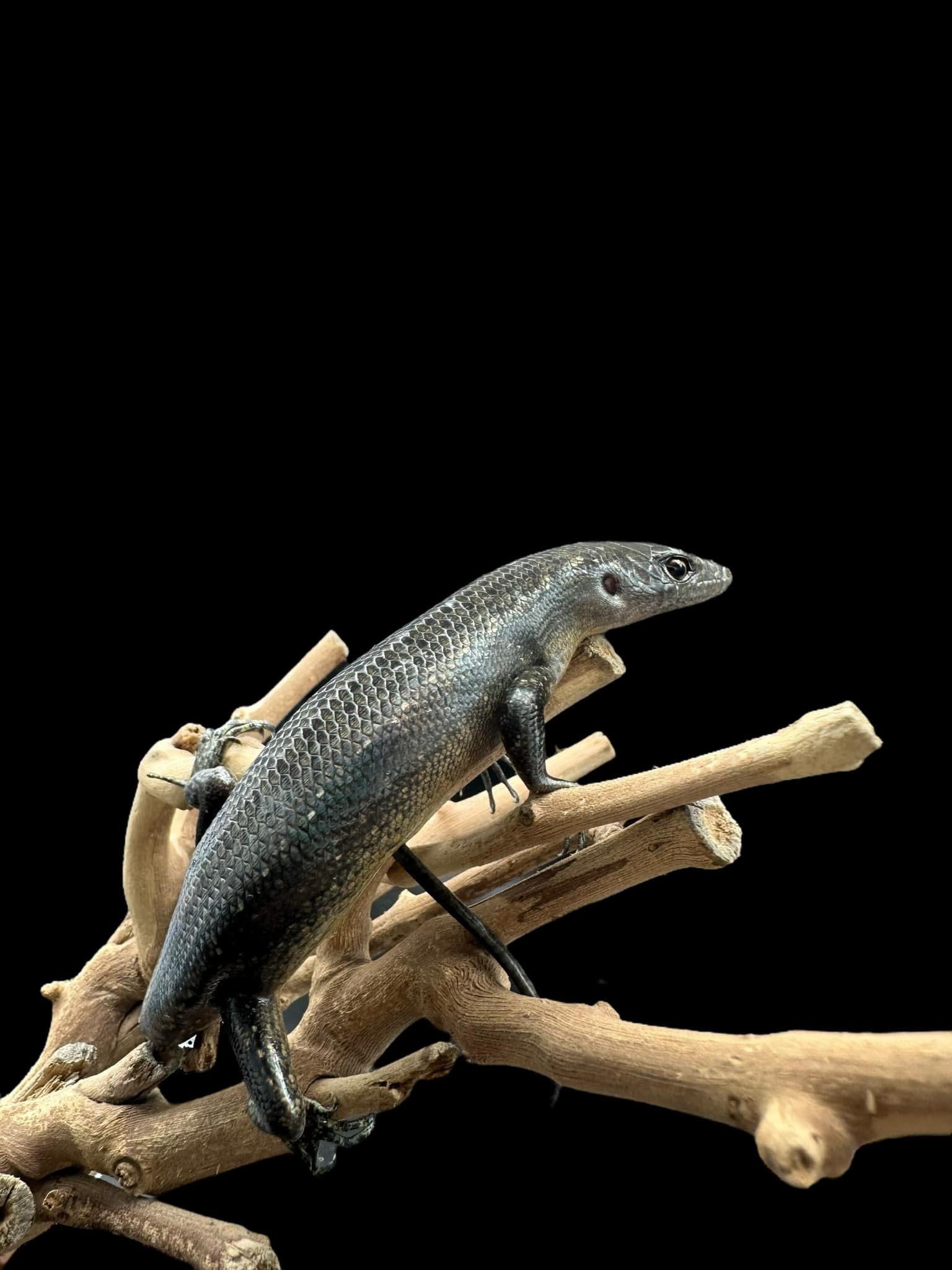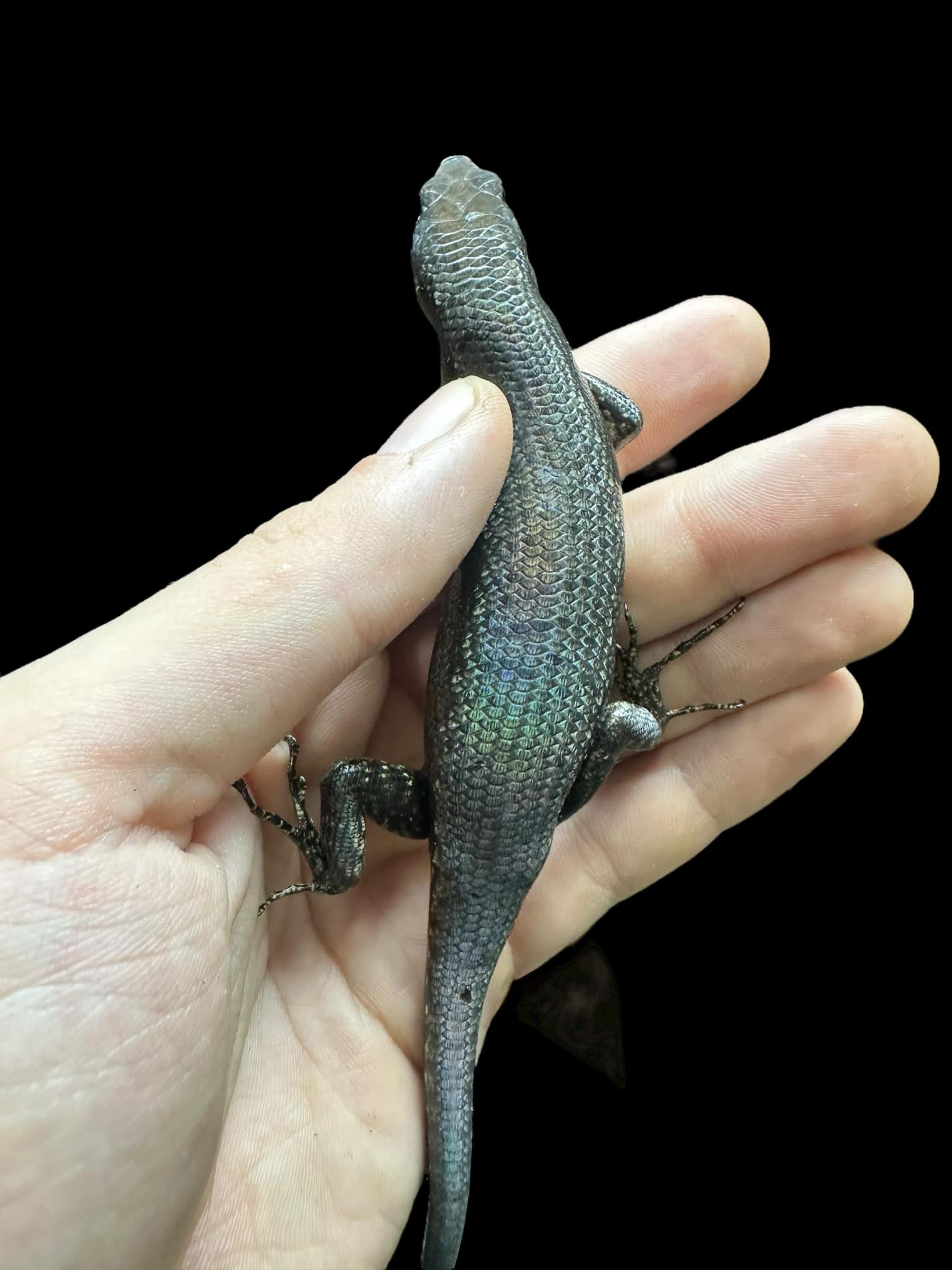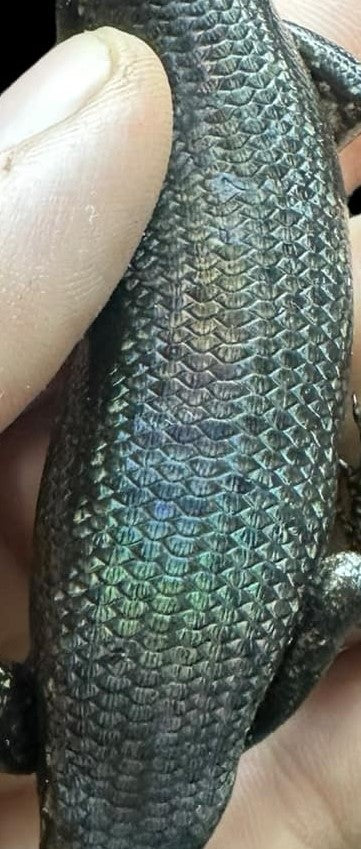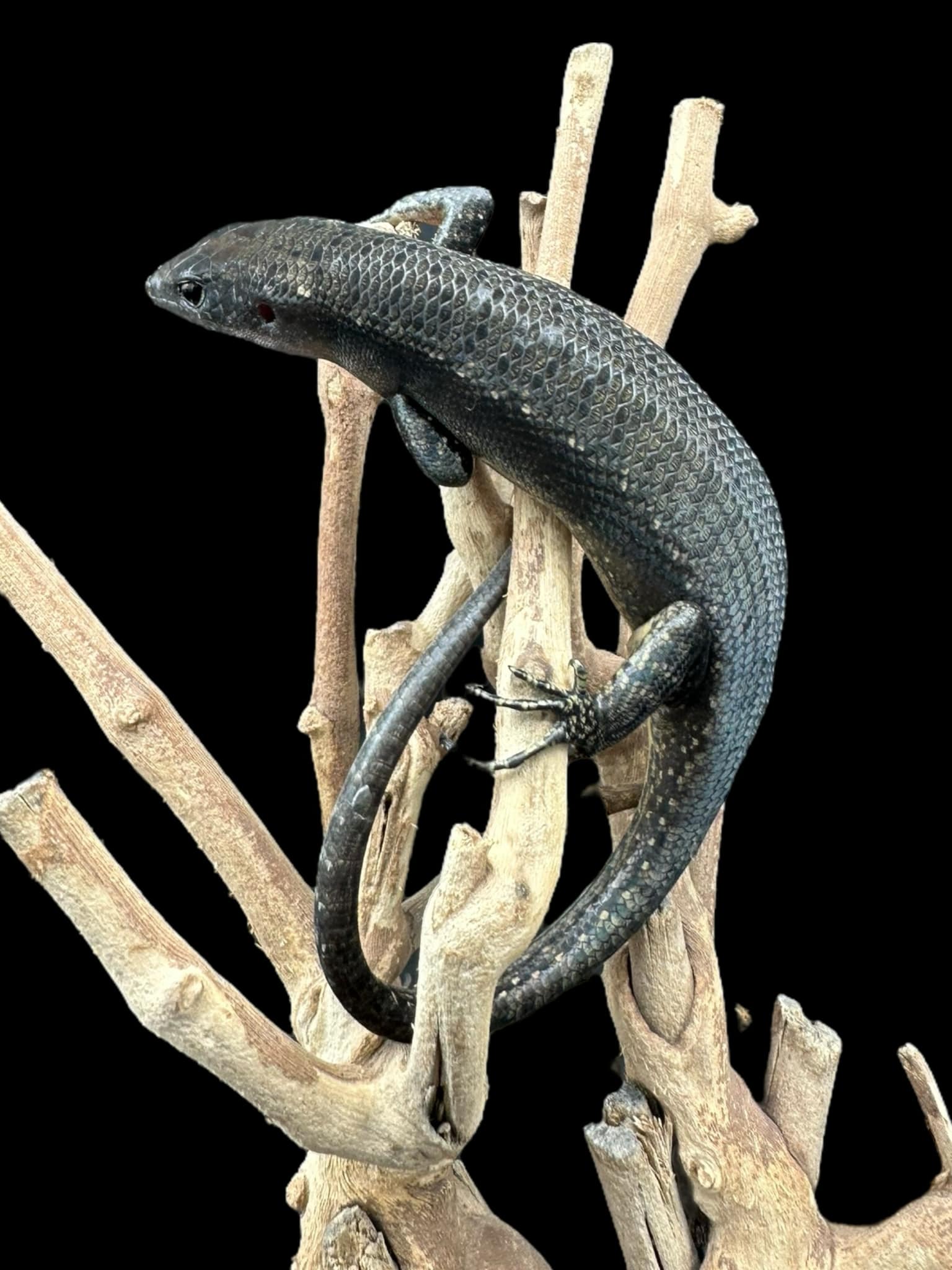Photo Disclaimer
Description
The Black Tree Skink, or Emoia nigra, is a small yet captivating lizard belonging to the Scincidae family. Native to the lush environments of the Solomon Islands, Vanuatu, and extending through Fiji to Tonga and western Samoa, this species is well adapted to its tropical habitat. Its range also includes the islands of Toga, Loh, Tegua, and Hiu.
Taxonomically, the Black Tree Skink was first described in the late 19th century, and its sleek, shiny appearance and distinctive color have made it a subject of interest for herpetologists and enthusiasts alike.
In the wild, the Black Tree Skink thrives in tropical rainforests and forest edges, where it can be seen basking in sunlit clearings or foraging among leaf litter. This diurnal species displays a solitary lifestyle, with individuals often seen alone, darting quickly to evade predators. Its diet primarily consists of small arthropods such as ants, termites, spiders, and small crustaceans, which it skillfully locates in its complex forest habitat.
Growing to a modest size, the Black Tree Skink does not exhibit significant sexual dimorphism or age-related color changes, maintaining a sleek, uniform appearance throughout its life. It can live for approximately 10 to 15 years, depending on environmental conditions and care.
In captivity, the Black Tree Skink requires a habitat that mimics its natural environment, with ample opportunities for climbing and basking. A well-structured terrarium with a varied landscape of branches, leaves, and hiding spots is essential. Proper temperature and humidity levels must be maintained to ensure the skink’s well-being, as these factors closely mimic its native tropical conditions.
Diet in captivity should focus on providing a variety of small, live invertebrates, ensuring a balanced intake of nutrients. Handling should be minimal to reduce stress, as these skinks can become easily agitated. Observing their natural behavior, such as their distinctive 'push-up' display when threatened, adds to the understanding and enjoyment of keeping this elegant and elusive species.

